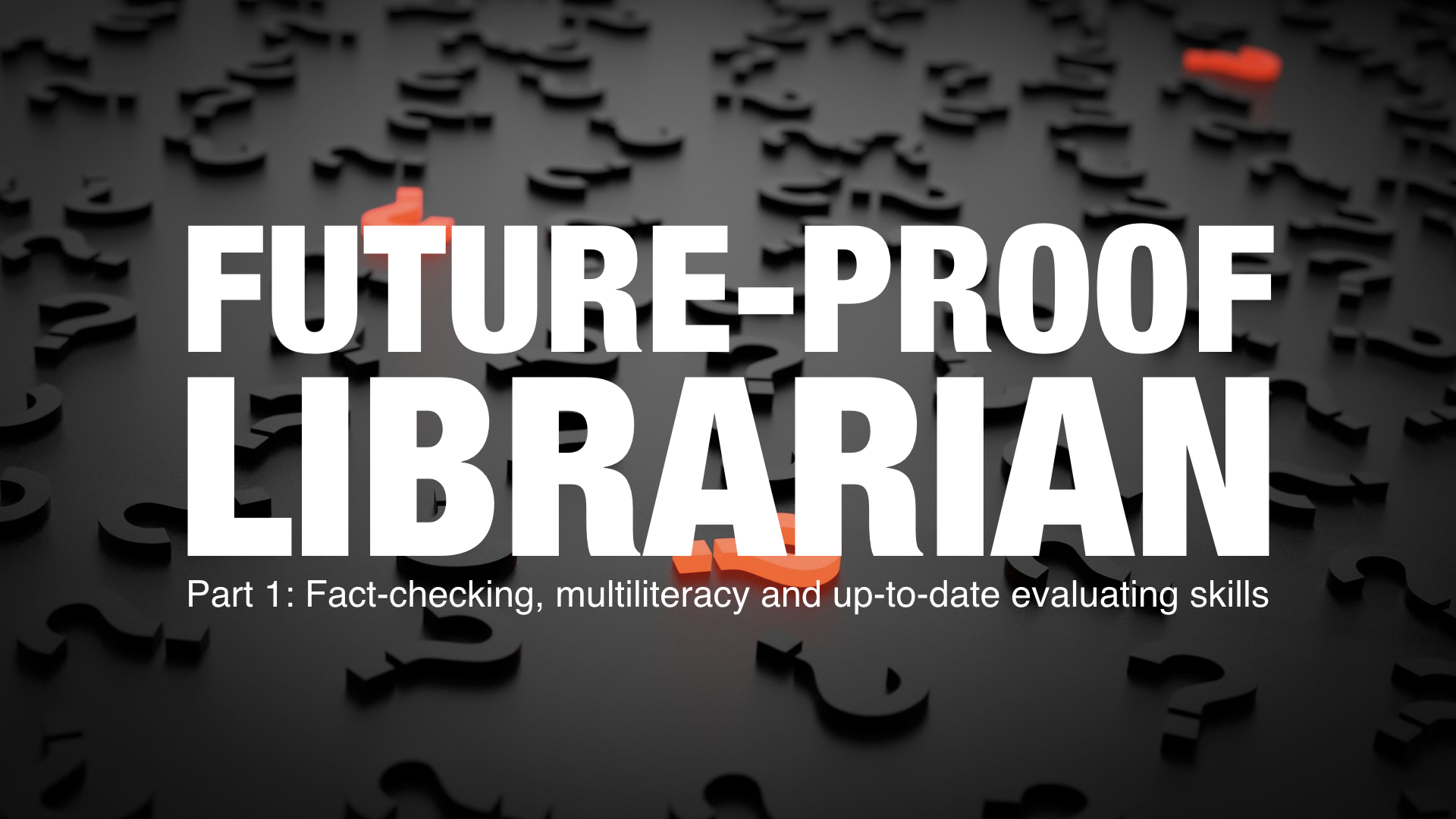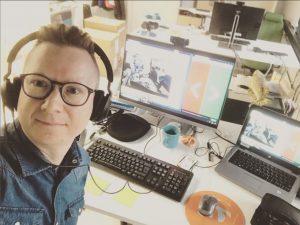Writer: Jarkko Rikkilä, coordinator, Tampere City Library – Regional Development Task, Finland
“It’s times like these you learn to… evaluate again!”
In today’s world every librarian should have the basic skills recognizing and evaluating misinformation. The changing media atmosphere and information advocacy affect to the librarian competence. Multiliteracy is essential as it describes the diversity of communication. Also, we could learn new abilities by producing and editing content in Wikipedia.
One of our key themes in library staff training in the last couple of years has been raising the awareness of the changing professionalism that deals with identifying false information. IFLA’s How to spot fake news -infographic is a relevant checklist that is also shared among Finnish libraries. The evaluation of information is in the core of the librarian spirit. We are professionals in evaluating and helping our customers with reliable information from the collection. However, in the diversified global information environment the library collections are just one side of the coin.
There’s so much going on and the libraries have an impact. For example the covid pandemic caused a phenomenon called infodemics and to address this the WHO launched a special training on infodemic management. On the other hand, new channels and tools cause thoughts for the individual library worker. A concept called Data Detox Kit is addressing these themes. The kit offers everyday steps you can take to control your digital privacy, security, and wellbeing.
Disinformation, change of expertise and management of own data -training program for librarians
Last year we organized and conducted a four-part training program with an external library consultant called Disinformation, change of expertise and management of own data. The program consisted of the following parts:
- Getting to know the phenomenon
- Tools for preventing disinformation and fact-checking
- How do I manage and build my own information environment?
- Libraries as mediators of “reliable information”
The first part consisted of the basic terms and concepts of the matter. Second part provided the participants with tools of fact-checking. The third part concentrated on the individual – what can I do to clarify my own information environment? The fourth part argued the role of libraries in providing reliable information through collections. According to the feedback we got the program answered many of the questions our librarians are dealing with. The sessions also provided participants with good discussion and perspectives on the role of the library now and in the future.
Information advocacy and workhops this year
This year here in Tampere we were joined by two other regional development organizations (Lahti & Porvoo) to construct and educational program for libraries related to information, advocacy and libraries. Our series is focusing on themes like freedom of expression, fake news and change of expertise. We are kicking off the program with a special day where we have different specialists speaking out their views: Social media influencer, journalist, and civic activist. Besides this there will be a panel discussion where we point out the views of the library.
After the kick-off day we’re going to have three workshops this year for library workers throughout Finland. The workshops are happening this spring and the next autumn. Workshop themes are how to identify misinformation, how to plan a customer event and how to get started as a library with Wikipedia. In the next Future-proofing the librarian blog post I’m going to introduce ideas from Sweden about Wikimedia co-operation. So – stay tuned!

